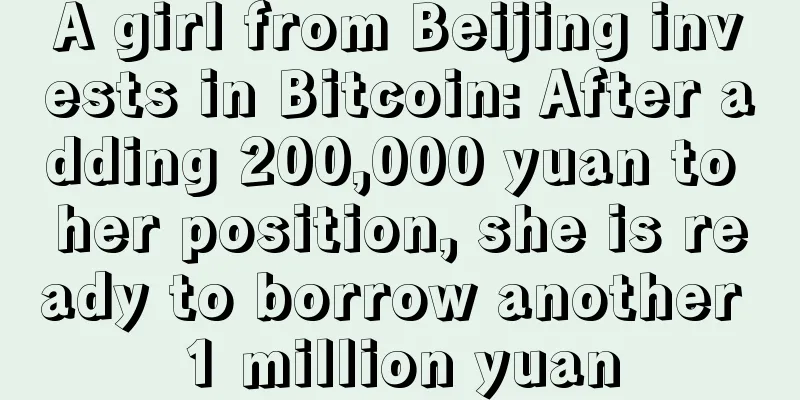Seven Asian banks researching Bitcoin and blockchain technology

Translation: Height difference signal is full Until recently, financial institutions in Asia have shown little interest in Bitcoin and blockchain technology. In fact, banks seemed to be busy sounding the alarm about digital currencies rather than jumping into the action. The collapse of Mt Gox in Japan and the crackdown of the People’s Bank of China on Bitcoin trading, both of which occurred in 2014, directly led to Asian financial institutions becoming wary of Bitcoin. However, the recent enthusiasm for blockchain technology in the global financial sector has gradually increased, and everyone seems to have temporarily put aside the above concerns. Now the banking system in Asia has also shown attention to this disruptive technology, just like Europe and North America. Evidence of this fundamental shift is that a slew of large financial institutions in China, Japan, and South Korea have recently launched or voiced support for blockchain and digital currency projects and developed proofs of concept around promising applications. In this article, we review banks in Asia that are embracing blockchain technology. Japan's largest bank develops its own cryptocurrency Earlier this month, Japan’s Mitsubishi UFJ Financial Group (MUFG) revealed that it had developed its own digital currency, “MUFG coin,” as part of its research into blockchain and distributed ledger technology. The digital currency project seeks to replicate bitcoin’s inherent peer-to-peer (P2P) transactions and mobile wallet features, but does not rely on the bitcoin blockchain’s distributed network of miners. MUFG started the project in the fall of 2015 with the goal of reducing the costs of managing financial transactions, particularly P2P transactions and remittances. MUFG is Japan's largest bank and ranks eighth in the world by total assets, according to Relbanks.com. Major South Korean Bank Launches Blockchain Remittance Project South Korea’s KB Kookmin Bank announced this week that it is developing an international remittance solution based on blockchain technology, with the goal of providing “safer and faster” foreign exchange services. For the project, KB Kookmin Bank said it is working with local bitcoin startup Coinplug, and the premise of the project is to eliminate the middlemen of international SWIFT bank transactions, with the ultimate goal of providing cheaper services to customers. A bank spokesperson said at the time: “Blockchain technology is a brand new trend, and we are trying to use it on a platform with a lower degree of data integration. We plan to upgrade our services to provide our customers with more secure and convenient financial services.” Kookmin Bank also announced plans to develop an "overseas funds transfer and data storage service" that can be verified when opening online bank accounts. Kookmin Bank is the largest subsidiary of South Korea's KP Financial Group. The financial group's 2014 annual report showed that the group has 30 million customers, more than half of South Korea's population, and the group's revenue in 2014 was 1.4 trillion won (US$1.16 billion). Singaporean banks begin investing in blockchain At the end of 2015, Singapore's DBS Bank and international banking company Standard Chartered signed a blockchain cooperation agreement. The purpose of the joint project is to create a distributed ledger project for transaction finance. Executives from both banks told Bloomberg that they have completed initial testing of the idea and they are ready to work with other companies in 2016. Although only in outline, DBS and Standard Chartered are considering various distributed ledger technologies to achieve their project goals. In addition, according to a blog post by R3CEV co-founder Todd McDonald, the two banks plan to study the application of blockchain technology starting in May this year. DBS Bank is the largest bank in Southeast Asia, with total assets reaching US$319 billion in September 2015. Japanese companies collaborate on blockchain banking project Last December, Japan’s SBI Sumitomo Bank announced that it was developing a proof of concept to explore blockchain banking applications with Nomura Research Institute (NRI), the research arm of Nomura Holdings. While little information is available about the project, NRI said it will seek to “monitor business scenarios” with the goal of preparing a prototype for SBI Sumishin. However, a blockchain company, Dragonfly Fintech Pte, will be involved in the development of the project. In several statements, NRI senior director Minoru Yokote pointed to the project as an example of how the organization is seeking to embrace distributed financial technology. Yokote said:
SBI Sumishin is a joint venture between Japan's largest trust bank, Sumitomo Mitsui Trust Bank, and SBI Holdings. Founded in 1965, NRI is Japan's oldest private think tank, providing consulting services and IT solutions to a variety of fields, including the financial industry. The People's Bank of China is considering issuing digital currency. Last month, China’s central bank, the People’s Bank of China (PBoC), announced that they were considering issuing their own digital currency. The People’s Bank of China revealed that on January 20, the PBoC held a meeting to discuss the possibility of issuing a digital currency. The meeting was attended by the Governor of the People’s Bank of China Zhou Xiaochuan and Deputy Governor Fang Yifei, as well as some “relevant institutions, large financial institutions and expert consulting institutions.” The People's Bank of China also adopted the suggestions of Citigroup and Deloitte. The conference referred to opinions from all parties on how to issue digital currency. The People's Bank of China has organized a team to study digital currency since 2014, and the team's research results were eventually submitted to this Beijing meeting for review. Japanese banks join R3 blockchain collaboration Late last year, the R3CEV consortium announced that more institutions had joined them, topping 25 (now 40) as it combines its collective strengths to research and develop use cases for distributed ledger technology. One of these institutions is Japan’s Mizuho Corporate Bank, which has a long history of involvement in the Bitcoin industry, having worked with the failed Mt Gox Bitcoin exchange. In fact, Mizuho is currently going through legal proceedings related to that ill-fated partnership. Mizuho joined R3 in October last year. In a statement, Mizuho Bank said it saw the potential for blockchain technology to "improve every aspect of banking services." “Distributed ledger technology could be the next disruptive technology that can innovate every business of today’s banks,” said Toshitsugu Okabe, vice president and executive director of Mizuho Bank’s project incubation team at the time. South Korean bank invests in blockchain company Last December, blockchain remittance startup Streami just closed a $2 million funding round, with one of South Korea’s largest financial service providers, Shinhan Bank, among its investors. The bank invested about $427,000 Streami is targeting the foreign exchange markets in South Korea and China, hoping to help people bypass illegal cash remittance services in the region. Shinhan Bank is headquartered in Seoul, South Korea. Historically, it is the oldest bank in South Korea, established in 1897 as Hanseong Bank. |
Recommend
Observation | Ethereum is close to its historical high again and the market outlook remains strong
On January 19, the price of Ethereum is closely c...
How can you tell from a person's facial features whether he can save money? This kind of person can't save money even if he wants to.
We can know that some people, even if they earn a...
MIT: Blockchain and digital currency are redefining the trading rules of the 21st century
In the early days of Bitcoin, it was mainly compu...
Ethereum Serial (VII): Installation and Customization of Ethereum C++ Client (I)
Ethereum C++ client: cpp-ethereum Quick Start The...
What is the fate of 3 liang 3 qian? Detailed explanation of the fate of men and women with 3 liang 3 qian
We always have great curiosity about our destiny ...
Facebook exec: China's crackdown on Bitcoin mining is a "great development" for BTC
David Marcus, head of Facebook Financial (F2), wh...
Antminer S19 XP: The most profitable Bitcoin air-cooled ASIC mining machine review
We know that in 2022, Bitmain announced a strateg...
What are the facial features of women after abortion?
Nowadays, people are irresponsible towards their ...
How to read the toes in physiognomy
Physiognomy is very interesting. Not only do peop...
Judging a person's wealth and poverty by his body shape
In physiognomy, there is a saying that a good hea...
What does it mean when a man has a mole on the tip of his nose?
In addition to one's own numerology, the fact...
Mole location and destiny - what does a mole on a woman's nose mean
The tip of the nose is called the palace of wealt...
After Bitcoin, will P2P be reconstructed by blockchain?
Since P2P took root in China in 2007, whether it ...
What does a mole on a woman's mouth mean?
Many people have moles on their faces, but they g...
What does a woman’s face look like when her eyes are big or small?
Unequal eyes refers to eyes that are of different...









